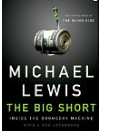Is the Web dead? Hope not.
March 26, 2011 § Leave a comment
Today my team completed the visual design phase of a major overhaul of our corporate web site—a big milestone in a project that’s been underway since last fall. In an interesting (and somewhat alarming) coincidence, today I also happened to read an article by Farhad Manjoo in Slate that asks the provocative question: Is the Web Dead?
Like Manjoo, I’ve been following the rapid growth of device-specific apps and have begun to wonder if the Web as a browser-based experience may soon be a thing of the past. Manjoo makes the case that the Web’s universality—its ability to display content regardless of the device or browser software used—will be its salvation. I suspect he’s onto something there, and I would also argue that for every “death” of a technology platform, I could show you an example where a new technology failed to supplant the old one it was supposed to kill off.
In any case, I’m betting that the Web will continue to remain vital—and perhaps exist side by side with apps—for the foreseeable future. Which, of course, is probably only about a year or two.
What do Keith Richards and the Great Recession Have in Common?
March 21, 2011 § 1 Comment
It’s been quite a while since my last post. Multiple looming deadlines and a much-needed vacation resulted in a significant downturn in blogging activity. I’m back in the saddle now, and a little more focused.
 While sitting on a warm beach drinking magaritas last week, I had a chance to read a couple of interesting books that turned out to have a common theme, despite the widely divergent subject matter. Life, Keith Richard’s epic autobiography, is highly enjoyable dive into the chaotic 40-year history of the Rolling Stones. Richards spends the first couple hundred pages of the book recounting the massive cultural shifts of the late 1950s and early 1960s. As a teenager during this period, he was obsessed with American blues and shared his passions with a very small clique of similarly obsessed Londoners—including Mick Jagger. Richards and the Stones labored in obscurity for a time, but exploded onto the world stage in just a few short years. In many ways, he came to define what it meant to be a rock star in a new and more tumultuous era.
While sitting on a warm beach drinking magaritas last week, I had a chance to read a couple of interesting books that turned out to have a common theme, despite the widely divergent subject matter. Life, Keith Richard’s epic autobiography, is highly enjoyable dive into the chaotic 40-year history of the Rolling Stones. Richards spends the first couple hundred pages of the book recounting the massive cultural shifts of the late 1950s and early 1960s. As a teenager during this period, he was obsessed with American blues and shared his passions with a very small clique of similarly obsessed Londoners—including Mick Jagger. Richards and the Stones labored in obscurity for a time, but exploded onto the world stage in just a few short years. In many ways, he came to define what it meant to be a rock star in a new and more tumultuous era.
 After 547 pages of music history and debauchery, I thought I’d try my hand at a slightly more serious topic—the Great Recession. Michael Lewis’ The Big Short: Inside the Doomsday Machine was a very insightful journey into the dark underside of Wall Street’s investment banks and the subprime Ponzi scheme that triggered the largest financial collapse since the Great Depression. Lewis follows a small group of individuals who, through obsessive research and at significant personal cost, accurately predicted the downfall of the investment banking system and made huge profits by betting against it.
After 547 pages of music history and debauchery, I thought I’d try my hand at a slightly more serious topic—the Great Recession. Michael Lewis’ The Big Short: Inside the Doomsday Machine was a very insightful journey into the dark underside of Wall Street’s investment banks and the subprime Ponzi scheme that triggered the largest financial collapse since the Great Depression. Lewis follows a small group of individuals who, through obsessive research and at significant personal cost, accurately predicted the downfall of the investment banking system and made huge profits by betting against it.
So what do Keith Richards and these lonely money managers have in common? First, both of them recognized they were on the cusp of a huge cultural event. They didn’t always know how things would play out, but they knew they were going to ride the wave, wherever it took them.
Second, both stories describe people who were absolutely driven to succeed. Richards tells of learning the guitar by spending his every waking hour copying the chord progressions he heard on American blues albums. Lewis’ money-manager heroes turn out to be the only people stubborn and obsessive enough to understand every detail of the complex financial instruments that were selling like hotcakes but were ultimately worthless. This dogged dedication to a goal—whether it was dominating popular music or learning the intricacies of modern finance—was central to the protagonists’ success in both cases.
And finally, both Richards and the money managers in The Big Short looked at the status quo and realized they had a better approach. Both faced naysayers and struggled for long stretches while the rest of the world caught up to their vision. But in the end, both Richards and the money guys who bet against the system came out on top in the most spectacular fashion.
Those of us who aren’t multimillionaires or global rock stars can nonetheless take a few lessons from these folks regarding risk, reward and the occasional benefit of challenging the status quo.